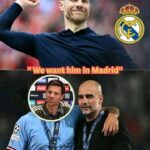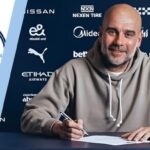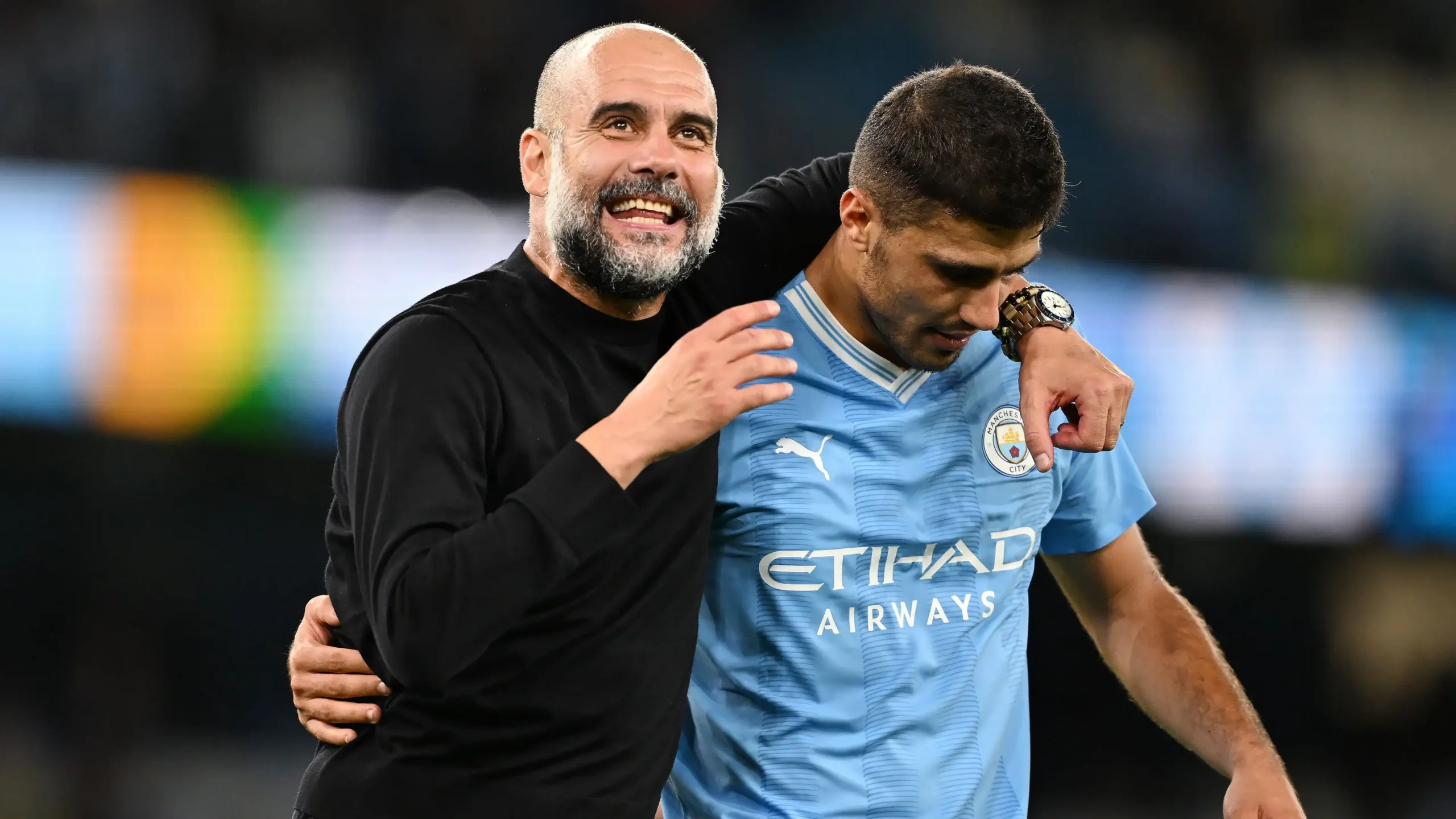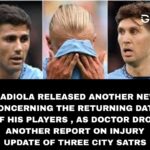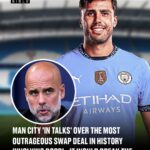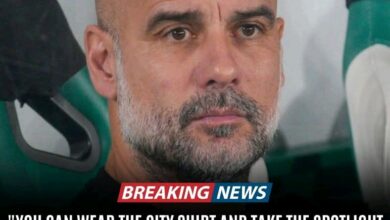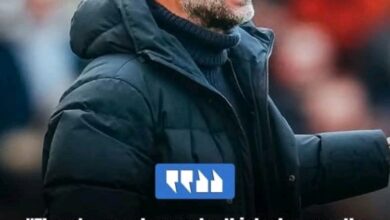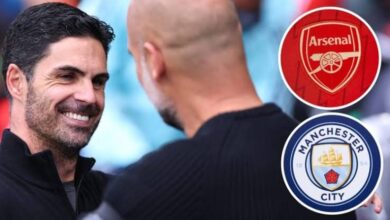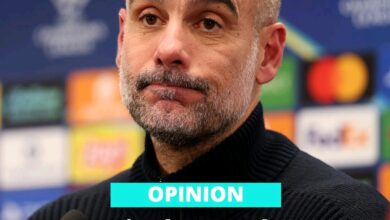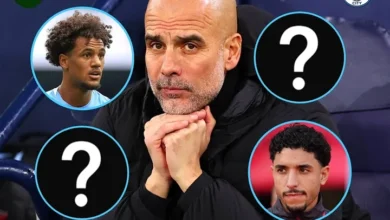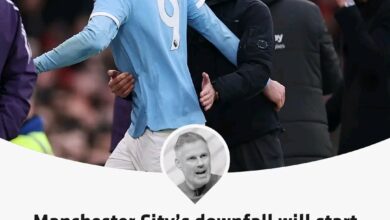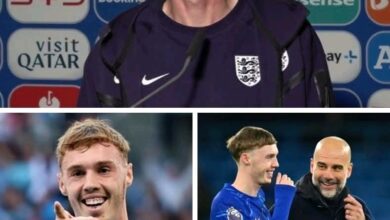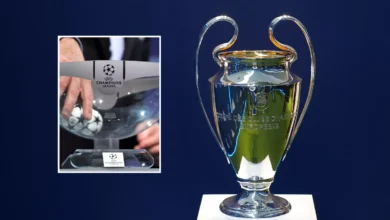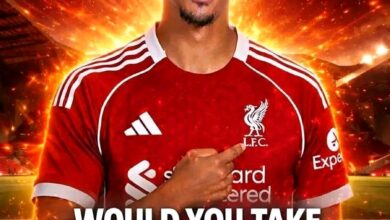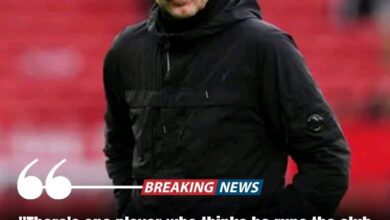Man City set to return before end of season, city doctor confirmed it
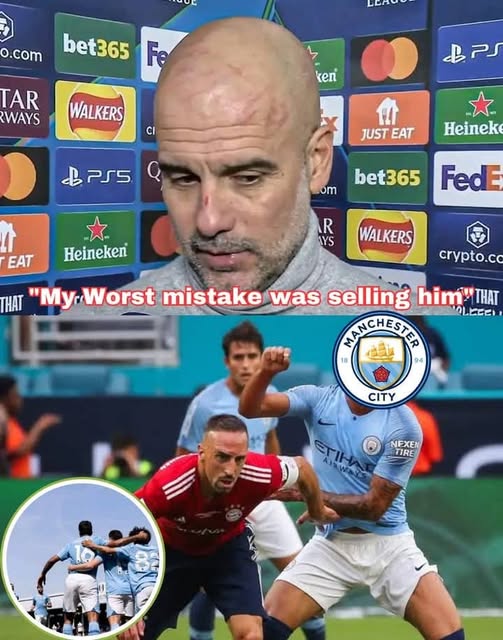
Manchester City’s midfield maestro Rodri finds himself at one of the most challenging crossroads of his illustrious career. The Spanish international, who has become the heartbeat of Pep Guardiola’s dominant City machine, is currently sidelined with a devastating anterior cruciate ligament (ACL) injury that has sent shockwaves through the football world. Yet, in true champion fashion, the 28-year-old midfielder refuses to concede defeat to this season, maintaining an unwavering belief that he can return to action before the campaign concludes.
The Moment That Changed Everything
The injury occurred during one of the most anticipated fixtures of the Premier League season – Manchester City’s thrilling 2-2 draw with Arsenal in September. It was a match that epitomized the intensity and physicality of modern football, where every tackle, every challenge, and every moment of contact carries the potential for career-altering consequences. For Rodri, that moment came when his right knee buckled under the pressure of what appeared to be a routine challenge, though the severity of the damage wouldn’t be fully understood until medical examinations revealed the complete rupture of his anterior cruciate ligament.
The timing couldn’t have been more cruel. Rodri was riding the crest of a wave following Spain’s triumphant Euro 2024 campaign, where he played a pivotal role in securing the nation’s fourth European Championship title. His performances throughout that tournament had elevated his status from an excellent midfielder to a world-class operator, someone who could dictate the tempo of matches at the highest level. The transition from international glory to personal devastation happened in the blink of an eye, demonstrating football’s capacity for both euphoria and heartbreak within the same breath.
When the injury first occurred, Rodri’s immediate reaction wasn’t one of panic or despair. His professional experience and understanding of his own body gave him initial hope that the damage might not be as severe as feared. “My feeling was, not like a crack, the knee was stable. I was confident it wasn’t too bad,” he revealed in a candid interview with The Rest Is Football podcast. This initial optimism, while ultimately misplaced regarding the severity of the injury, speaks to the mental resilience that has defined Rodri’s career and continues to fuel his recovery process.
The Ripple Effect of Rodri’s Absence
The impact of Rodri’s injury on Manchester City’s fortunes has been nothing short of dramatic, serving as a stark reminder of his integral role within Guardiola’s tactical framework. Since his absence from the team, City have endured an unprecedented drought, failing to secure victory in any of their subsequent six matches across all competitions. This barren run represents one of the most challenging periods in Pep Guardiola’s managerial tenure at the Etihad Stadium, highlighting just how dependent the team has become on Rodri’s unique skill set.
The Spanish midfielder’s role in City’s system extends far beyond simple statistics or individual brilliance. He functions as the team’s metronome, controlling the rhythm of play with his exceptional passing range, defensive awareness, and tactical intelligence. His ability to break up opposition attacks while simultaneously launching City’s own offensive movements has made him virtually irreplaceable in Guardiola’s setup. The current struggle to find adequate replacements speaks to the rarity of players who possess Rodri’s combination of technical ability, physical presence, and tactical understanding.
This period of struggle has also exposed the depth issues within City’s squad, particularly in the holding midfield position. While the club boasts incredible talent across multiple positions, the specialized role that Rodri occupies has proven difficult to replicate with existing personnel. Various tactical adjustments and player rotations have been attempted, but none have successfully filled the void left by the injured Spaniard, underscoring his unique value to the team’s overall functionality.
The Champion’s Mentality: Refusing to Surrender
Despite the severity of his injury and the typical recovery timeline associated with ACL ruptures, Rodri maintains an admirably optimistic outlook regarding his potential return this season. His target of six to seven months for recovery would potentially allow him to feature in the latter stages of the campaign, including the FA Cup final scheduled for May 17th or the Premier League season finale on May 25th. More intriguingly, his timeline could align with the expanded 32-team Club World Cup, set to take place in the United States from June 15th through July 13th.
“My target is to come back this season. I don’t give up on this season, but I don’t want to make any mistakes,” Rodri stated with characteristic determination. This balanced approach reflects the maturity and wisdom he has gained throughout his career – maintaining ambitious goals while acknowledging the importance of proper rehabilitation. The desire to return quickly must be tempered with the understanding that rushing back from such a significant injury could have long-term consequences that extend far beyond a single season.
The physical and mental challenges of ACL recovery are well-documented in professional sports. The first phase of Rodri’s rehabilitation was particularly grueling, as he candidly admitted: “The first month and a half was bad in terms of pain, I couldn’t walk, but now it is easier.” This honest assessment provides insight into the reality of major injury recovery, where initial optimism often gives way to the harsh realities of physical limitations and prolonged discomfort.
However, Rodri’s approach to this adversity exemplifies the mentality that has made him one of the world’s premier midfielders. Rather than dwelling on the negatives or becoming consumed by frustration, he has found ways to maintain perspective and even extract some benefits from his enforced absence. “I am enjoying the rest, if it possible to say it that way,” he noted, suggesting an ability to find silver linings even in the darkest moments of his career.
From Triumph to Tribulation: The Ballon d’Or Journey
Perhaps the most remarkable aspect of Rodri’s recent journey has been the dramatic contrast between professional triumph and personal setback. In the span of just a few months, he experienced both the pinnacle of individual recognition and the depths of physical adversity. His victory in the 2024 Ballon d’Or competition represented the culmination of years of consistent excellence and marked him as the first defensive midfielder to win the prestigious award since Fabio Cannavaro in 2006.
The emotional weight of this achievement cannot be overstated. “I have lived the best and worst part of my career with the Ballon d’Or and then injury, but it gives me oxygen to come back again in a good way,” Rodri reflected. This juxtaposition of experiences has provided him with a unique perspective on both success and adversity, creating a mental framework that could prove invaluable during his rehabilitation process.
The Ballon d’Or victory was particularly significant given the historical dominance of attacking players in the award’s recent history. “I can’t describe the emotion [of winning it]. In my generation [we] only see two guys winning the trophy [Lionel Messi and Cristiano Ronaldo],” Rodri observed, acknowledging the rarity of his achievement in an era defined by the extraordinary exploits of football’s two greatest icons.
The Madrid Controversy: A Question of Sportsmanship
Rodri’s Ballon d’Or triumph was somewhat overshadowed by Real Madrid’s controversial decision to boycott the ceremony in Paris. The Spanish giants’ absence was widely interpreted as a protest against Vinicius Jr.’s failure to win the award, a decision that sparked significant debate within the football community about sportsmanship and respect for the voting process.
Rodri’s response to this controversy demonstrated the grace and maturity that have become hallmarks of his public persona. “I cannot respect the decision,” he stated firmly, while maintaining focus on his own moment of triumph rather than engaging in extended criticism of Madrid’s choices. His philosophy on competition extends beyond mere victory, encompassing the broader values of sport: “In sport and in life, it’s important to win. But I think even more how to lose.”
This perspective reflects a deep understanding of competitive integrity that transcends individual achievements. Rodri’s emphasis on how one handles defeat speaks to character traits that likely contribute to his effectiveness as both a player and a leader. His decision to focus on the positive aspects of his Ballon d’Or experience – celebrating with his club, family, and supporters – rather than dwelling on external controversies, demonstrates the emotional intelligence that has served him well throughout his career.
The Guardiola Factor: A Partnership Built on Growth
Central to Rodri’s development into a world-class midfielder has been his relationship with Pep Guardiola, a partnership that began when the player joined Manchester City from Atlético Madrid in 2019. The adaptation process was not immediate, requiring significant adjustments from both player and manager as they worked to integrate Rodri’s skills into City’s complex tactical system.
“I used to stay behind training most of the time with the manager, talking, because I wanted information,” Rodri recalled, highlighting the dedication and hunger for improvement that characterized his early days under Guardiola’s tutelage. This willingness to seek additional instruction and spend extra time perfecting his understanding of the system speaks to the work ethic that has defined his career progression.
The transformation was gradual but ultimately profound. “First year was a massive change for me,” Rodri acknowledged, referencing the significant tactical and physical adjustments required to excel in Guardiola’s demanding system. The evolution from a talented but somewhat raw defensive midfielder at Atlético to the polished, tactically sophisticated operator he has become at City represents one of the most successful player development stories of recent years.
Guardiola’s recent decision to sign a two-year contract extension with Manchester City has provided Rodri with additional motivation during his recovery period. The prospect of continuing their successful partnership gives him something concrete to work toward, beyond the immediate goal of returning to fitness. “I am so excited he has decided to stay,” Rodri expressed, emphasizing the personal and professional significance of Guardiola’s commitment to the club.
The Science of Recovery: Modern Rehabilitation Approaches
ACL injuries represent one of the most significant challenges in professional sports medicine, requiring comprehensive rehabilitation programs that address not only the physical healing process but also the psychological aspects of recovery. Modern treatment approaches have evolved considerably in recent years, offering hope for athletes facing similar challenges to return to their previous levels of performance.
The typical recovery timeline for ACL reconstruction ranges from six to twelve months, depending on various factors including the individual’s age, fitness level, and the specific demands of their sport. Rodri’s target of six to seven months places him on the more aggressive end of this spectrum, reflecting both his exceptional physical condition prior to the injury and the quality of medical support available to him at Manchester City.
Contemporary rehabilitation protocols emphasize a phased approach to recovery, beginning with basic mobility and pain management before gradually progressing through strength building, functional movement patterns, and sport-specific activities. The psychological component of recovery is equally important, as athletes must rebuild confidence in their injured limb while managing the mental challenges associated with prolonged absence from competition.
Rodri’s positive attitude throughout the early stages of his recovery suggests that he is well-positioned to navigate these challenges successfully. His ability to find perspective and maintain motivation during the most difficult phases of rehabilitation could prove crucial in determining both the speed and completeness of his return to competitive action.
The Broader Context: City’s Season Without Their Anchor
The impact of Rodri’s absence extends beyond immediate match results to encompass broader questions about squad planning, tactical flexibility, and the sustainability of playing styles that depend heavily on individual players. Manchester City’s struggles during his absence have highlighted both the effectiveness of their typical approach and its potential vulnerabilities when key components are removed.
Guardiola’s tactical system at City has been built around maximizing the strengths of his available personnel, with Rodri’s unique skill set becoming increasingly central to the team’s functionality over recent seasons. The difficulty in replacing his contributions has forced the manager to consider alternative approaches and formations, providing valuable insights into the team’s tactical evolution and future development.
This period of adaptation may ultimately benefit City in the long term, forcing them to develop greater tactical flexibility and reducing their dependence on any single player. However, the immediate challenges are undeniable, with the team’s recent poor form coinciding directly with Rodri’s absence and creating additional pressure as they compete across multiple competitions.
Looking Forward: The Path to Return
As Rodri continues his rehabilitation journey, several key factors will determine the success of his comeback attempt. The physical healing process must be complemented by careful management of his return to training and competition, ensuring that enthusiasm to contribute doesn’t override medical prudence.
The extended Club World Cup presents an intriguing possibility for his return, offering a prestigious tournament that could provide the perfect stage for his comeback while giving him additional time to complete his recovery. The tournament’s timing – beginning in mid-June – aligns well with his projected recovery timeline while offering the prospect of meaningful competition to justify the extended rehabilitation period.
Manchester City’s needs and priorities will also influence the timing and nature of Rodri’s return. If the team can stabilize their form and secure their immediate objectives without him, there may be less pressure to accelerate his comeback. Conversely, continued struggles could create additional motivation for both player and club to pursue a more aggressive return timeline.
Conclusion: The Making of a Comeback Story
Rodri’s injury represents more than just a temporary setback for one of football’s premier midfielders – it embodies the unpredictable nature of professional sport and the resilience required to compete at the highest level. His response to this challenge, characterized by determination, realism, and unwavering ambition, provides insight into the mentality that has made him one of the world’s best players in his position.
The journey from injury to recovery is rarely linear, filled with setbacks, breakthroughs, and moments of doubt that test an athlete’s resolve. Rodri’s approach to this challenge – maintaining ambitious goals while respecting the rehabilitation process – suggests that he possesses the mental tools necessary to navigate these inevitable obstacles successfully.
Whether he achieves his goal of returning this season remains to be seen, but his commitment to the process and refusal to concede defeat to his circumstances have already demonstrated the character that made him a Ballon d’Or winner. His story serves as a reminder that true champions are defined not only by their moments of triumph but by how they respond to adversity, and Rodri’s response to this significant challenge suggests that his best chapters may still be ahead of him.
The football world will be watching closely as this comeback story unfolds, hoping to witness the return of one of the game’s most influential players to the stage where he belongs. For Manchester City, their fans, and football enthusiasts everywhere, Rodri’s journey back to fitness represents more than just one player’s recovery – it symbolizes the enduring power of determination, the importance of perspective, and the unwavering belief that setbacks are merely opportunities for even greater comebacks.
